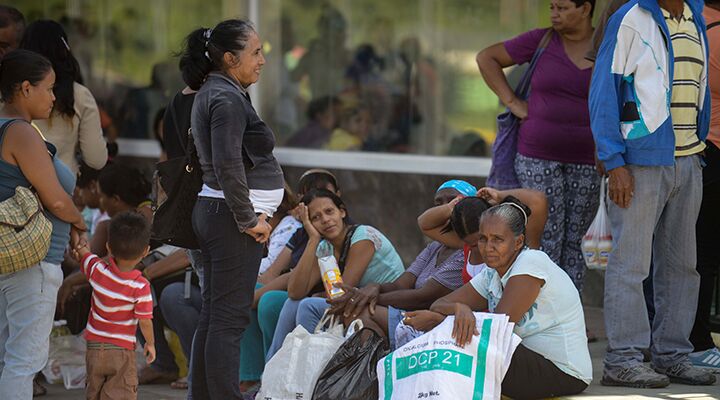
Venezuelan Price Controls Escalate, Social Unrest Rises
The Venezuelan government’s socialist price controls have made it difficult for residents of the nation to attain the most basic necessities.
Reports from the past week tell an alarming story: One woman waited in line for five hours for a chicken—returning empty-handed. A man two days later posted a photo using a $2 bolívar bill as a napkin, because the currency was worth less than a napkin.
President Nicolas Maduro has continued the war that former president Hugo Chavez waged on the laws of supply and demand. Artificially low prices are still maintained on goods such as milk, chicken, wheat and toilet paper.
The consequences are clear. There are huge shortages, as producers complain prices are too low to make profits. The fixed exchange rate is currently set at 6.3 bolívars per United States dollar, while the unofficial black market exchange rate skyrocketed 700 percent in the past 12 months. One U.S. dollar buys approximately 670 black market bolívars. The official inflation rate is 68.6 percent, but some economists estimate the real inflation rate is over 500 percent.
An owner of a 20-room boutique hotel in Sierra Nevada National Park told reporters, “It’s an extreme situation …. For over a year we haven’t had toilet paper, soap, any kind of milk, coffee or sugar. So we have to tell our guests to come prepared.” She refuses to buy goods from the expanding black market on principle.
Many other Venezuelans are fine taking the small risk to purchase goods from the black market. The higher priced black market goods are worth the hours spent standing in line to buy government-subsidized goods.
President Maduro refuses to acknowledge his faulty economic policies. Instead, he blames his country’s problems on smugglers, hoarders and street vendors—people employing the natural capitalist response to shortages. Discontent among the population is rising, as shown in the July 31 rioting and looting in San Félix, Bolívar state. With presidential elections coming up in December, the country is in an extremely precarious position.
Venezuela is a reminder to the American public of what happens to an economy influenced by overbearing state programs and price controls. It is a lesson in bad government. It’s a warning of what could be in America’s future. For more on the effects of government price controls, read “California Passes Law Banning Businesses That Aren’t Profitable and Fair Enough.”
